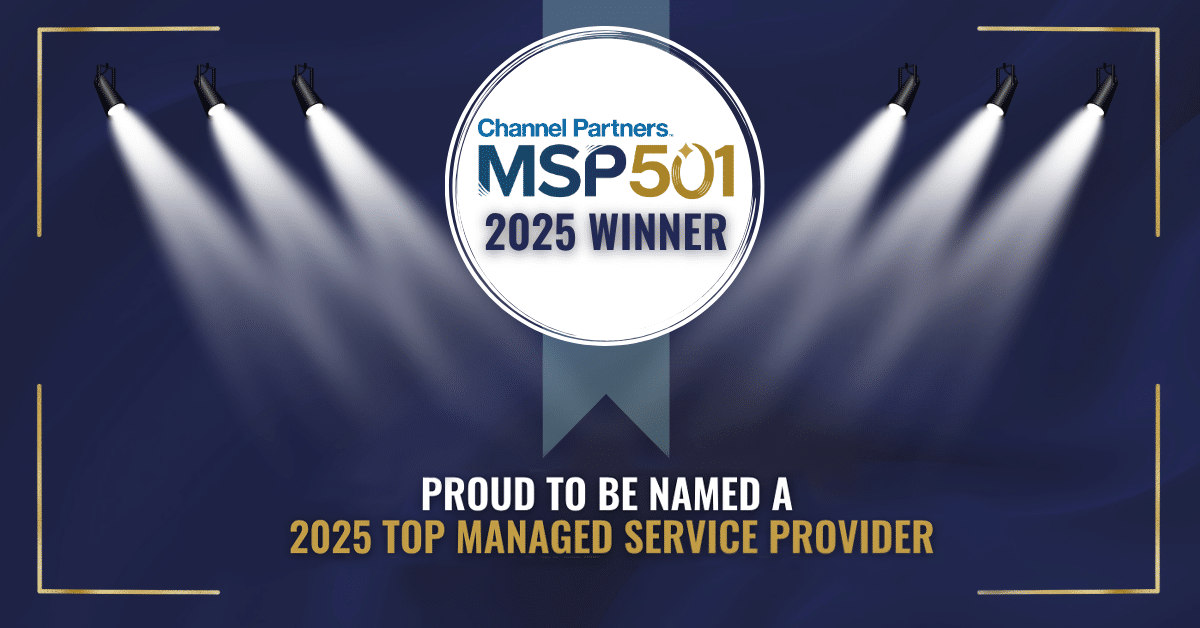There’s no question that the service level metrics your managed service provider includes in your service level agreement (SLA) are important. After all, they help your small business know whether your MSP is delivering the service they agreed upon. However, a true hallmark of a client-focused managed IT service provider incorporates a quality assurance (QA) program – ensuring issues are resolved properly and professionally before they impact your business.
Here’s how we are delivering our obsessive service promise through proactive quality assurance.
Teal’s Proactive Quality Assurance
You don’t have extra time to give up out of your day to complain to an MSP (and you shouldn’t have to). Nor should you be paying for reactive IT services. That’s why we have a formal quality assurance process for our clients.
We catch issues and remediate them before they can deteriorate service delivery. What’s more, our team leads are held accountable for this process. Here’s what that QA process looks like in practice:
Our Weekly Quality Assurance Process
Having a formal QA process improves customer satisfaction and fosters trust in our commitment to excellence.

1. Randomly Review Support Tickets
Throughout the week, our team leaders randomly select tickets from their teams based on a list of criteria.
“We have very specific criteria we’re looking for,” said Lynn. “Especially if it’s a phone call we’re reviewing where the tech will reach out to the client or user, or the user reaches out to our tech.”
The selected tickets are carefully reviewed to determine:
- If it was properly assigned.
- How well our technical representative communicated with the client.
- If the representative troubleshoots the ticket correctly.
- If the correct process was used.
- Etc.
2. Score Process & Service Delivery
Once the reviews are complete, the team leads rate the overall performance of each randomly selected ticket and annotate it on our QA scorecard.
“We rate [the process] and then customer service,” said Lynn. “We use a rolling scale of one to five. One being the lowest possible score, 5 being the best.”
3. Discuss QA Scores
This step is where the magic happens – including coaching or assigning additional training. After the review is complete, the team lead sets up a meeting with each technical representative to discuss their QA scores for the week.
“If they have questions, we can pull up the call and play it for them and go, ‘Hey, this is what I’m talking about’,” said Lynn. “Plus, we go over what they need to improve, if anything. It’s a great way for us to judge weekly or daily how well they’re doing.”
This step is key to ensuring that other clients are not impacted by an unapproved process or subpar service delivery.

4. Evaluate Overall Performance
The scores from the weekly QA reviews don’t lose their effectiveness over time. Teal leaders use them to evaluate each tech’s overall performance.
“[The QA process] is all part of the feedback loop,” explained Sharon, “Our weekly discussions contribute to their quarterly reviews, where we assess their QA performance using the metrics we collected – whether positive or negative.”
This QA process functions as an important tool for improving individual performance. Because it helps leaders coach each tech for ticket, technical, and service performance.
Management Involvement in QA
A vital part of our QA process involves upper management reviewing randomly selected support tickets once a month.
“They all go in and listen to those random calls to see how things are going,” said Sharon. “Plus, the team leads share the QA scorecards with Tom, our Vice President of Service. Tom then shares them with our CEO in his weekly meeting. It’s important to have eyes on these metrics at all levels to ensure we’re meeting or exceeding them.”
Teal Metrics Drive Customer Satisfaction
When we say we’re obsessive about service, we mean it. Everyone at Teal is committed to providing our clients with white glove service delivery to accelerate their competitive advantage and keep their mission successful.
“Can we stop the obsession with excellent service? No, never,” said Don Sauer, Teal CEO and Cofounder. “We have to keep earning it every day.”
That’s why we create formal processes around our obsessive service promise to measure it and ensure we’re delivering the best performance possible. Quality assurance is just one piece of the service puzzle.
We also measure our performance through Customer Satisfaction (CSAT) surveys on every interaction and biannual Net Promoter Score (NPS) surveys. In fact, our clients gave us a high score on our latest NPS survey.
“Our exceptional NPS score of +67 and CSAT score of over 95% reflect our unwavering commitment to obsessive service,” said Gar Whaley, Teal CRO and Cofounder. “These achievements underscore the hard work and dedication of our teams in delivering excellence to every client. We’re not just focused on meeting expectations. We’re dedicated to exceeding them, ensuring that every small business we partner with benefits from the highest levels of support and satisfaction.”
Get the IT Support You Deserve
Teal offers responsive and secure managed IT services to SMBs nationally, with local headquarters based in:
If you’re interested in learning about our premier IT consulting, contact a Teal business technology advisor.










